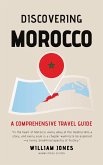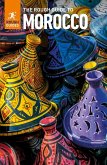In "Mogreb-el-Acksa: A Journey in Morocco," R. B. Cunninghame Graham provides a vividly detailed account of his travels through Morocco, blending meticulous observation with poetic prose. The book is not merely a travelogue but serves as an exploration of the cultural and social landscapes of a country steeped in history and tradition. Cunninghame Graham's rich descriptive style immerses readers in the sights, sounds, and scents of Moroccan life, all framed within the broader context of British literary travel writing of the late 19th and early 20th centuries, where the interplay between the exotic and the familiar was keenly examined. Cunninghame Graham was a prominent Scottish author, politician, and explorer whose experiences in various colonized regions informed his perspective on imperialism and cultural identity. His intersectional background in politics and literature endowed him with a unique lens through which to view Moroccan society, allowing him to challenge prevailing stereotypes and highlight the complexities of life in a post-colonial world. His diverse experiences inspired a commitment to social justice, reflecting a nuanced understanding of the peoples he visited. This book is a must-read for those fascinated by travel literature, cultural studies, and the intricacies of Moroccan history. Cunninghame Graham invites readers to embark on an evocative journey through Morocco, offering insights that resonate well beyond the text. His work is essential for anyone seeking a deeper understanding of the region and its enduring legacies.
Dieser Download kann aus rechtlichen Gründen nur mit Rechnungsadresse in A, B, BG, CY, CZ, D, DK, EW, E, FIN, F, GR, H, IRL, I, LT, L, LR, M, NL, PL, P, R, S, SLO, SK ausgeliefert werden.









